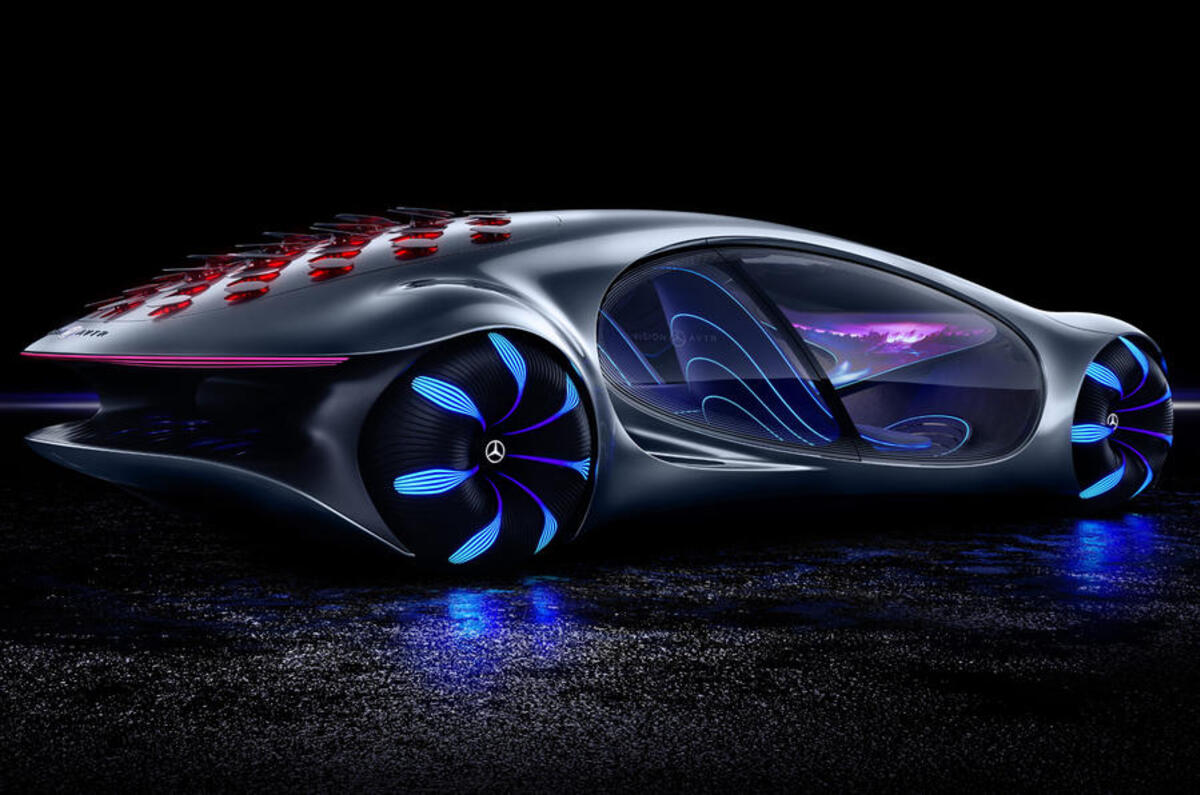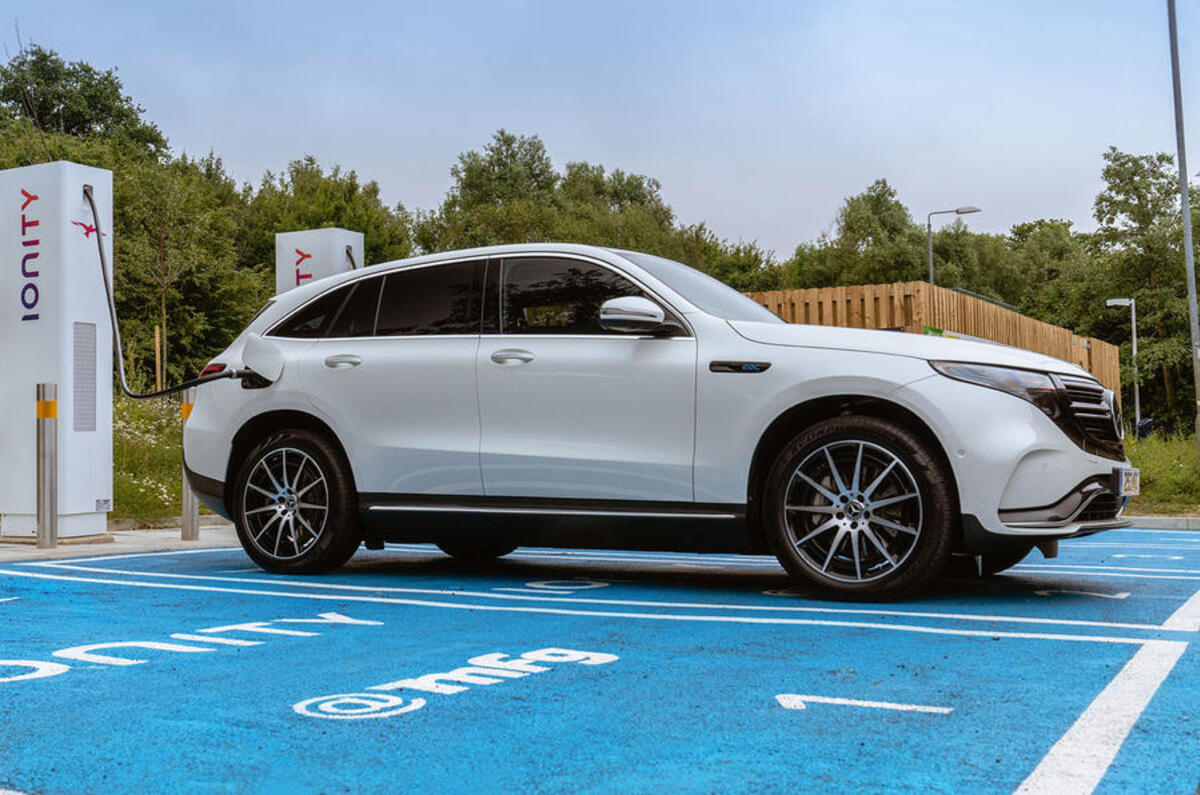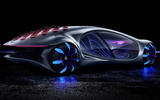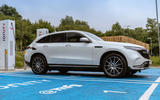Radical environmentally friendly organic batteries are a “very promising technology” being evaulated by Mercedes-Benz for future use in road cars – but it's at least 15 years away from mainstream production.
The technology was previewed on the future-gazing Mercedes-Benz Vision AVTR concept car unveiled earlier this year.
Organic batteries are made from graphene-based organic-cell chemistry with a water-based electrolyte. That means they don't use any rare or toxic materials or metals, making them entirely recyclable through composting. Early testing shows they also offer both a high energy density and quick-charging capability.
Andreas Hintennach, Mercedes' senior manager of battery research, said: “It’s a very promising technology. I’ve already seen it working in laboratories, where the results look really good, but we don’t see that it’s close to being used in production technology for now. It’s around 15-20 years away.”
Mercedes-Benz has set a goal of becoming entirely carbon-neutral by 2039. To this end, it's researching a number of technologies to reduce the environmental impact of battery production – particularly by cutting down the use of controversial materials such as cobalt and lithium. All current electric vehicles, including the Mercedes-Benz EQC and the firm's other EVs, use lithium ion battery technology.

Mercedes is working to improve the efficiency of lithium ion batteries – Hinnentach estimates that range could still be boosted by up to 25% – while evaluating a number of future technologies that it aims to introduce within the next 5-15 years.
That includes solid-state batteries, but while Hinnentach said this tech “opens a lot of doors and windows”, he cautioned that “it’s not a magic solution”. He added: “Solid state adds lots of positive aspects. It’s not a miracle but would be a huge step forward.”
Hinnentach added that a major current problem with solid-state batteries is long charging times, making them unsuitable for road cars. Mercedes is aiming to first introduce them into production in an eCitaro bus in the second half of this decade.
Other technologies under investigation by Mercedes include lithium-metal anodes, lithium-sulphur batteries and lithium-oxygen batteries. Hinnentach said that all offer different benefits and drawbacks in terms of efficiency, density and weight.
He noted that different battery types would likely be used in different vehicles, with lithium-sulphur, which is lighter than lithium ion, potentially allowing for vehicles to be fitted with smaller battery packs.
Asked if there is a risk in pursuing multiple technologies, Hinnentach said: “It is challenging, but you need novel ideas. We need to be very focused on the future.
"You do risk inefficiency by looking at multiple options, and not all will make it to market, but if you didn’t take risks in R&D by backing multiple horses, then you could end up losing. We’re also keeping the pipeline open for the future."
READ MORE
Mercedes-Benz reveals futuristic Vision AVTR concept car
Toyota to reveal solid state battery-powered prototype in 2020











Join the debate
Add your comment
Hydrogen
Hydrogen is the way forward, just needs infrastructure and more affordability
We’ve got?
we have got 15 yrs to do that.
Peter Cavellini wrote:
These things needed to happen more like 15 years ago.
BEVs will win and in fact have won, 2,250,000 BEVs were made last year, FCEVs around 2000.
BEVs had the advantage that their principal component was mass produced for consumer electronics and that electricity is everywhere. Hence an early adopter 10 years ago could generally plug their car in at home, if they were travelling a longer distance they could often plug in at the destination with a 3 pin plug.
Today with Tesla superchargers you can road trip around europe and america and that network was paid for out of the cost of car sales.
To use hydrogen you need to have a hydrogen filling station convientiently located near to where you live and also across the whole country before even early adopters can get to the same functionality EVs had (you need to have your own H2 filling station to replicate what most EV drivers have). Hydrogen filling stations cost a lot more than plug sockets.
Who is going to pay for that when BEVs are a perfectly good solution?
This combined with the fact that EVs vastly out perform FCEVs on power and that hydrogen is niether green nor efficent means that the only way FCEVs beats BEVs is if it cornered the market before BEVs.
It hasn't and hence it won't.
Why tell us now?
15yrs, by that time most will not remember being told, why no5 just quietly work away developing them.
Solid state, graphene... the
Solid state, graphene... the promised future of battery tech seems perpetually out of reach. It's a good thing that car manufacturers are very skilled at making incremental improvements to existing tech, because it seems we are stuck with lithium ion batteries for a while longer.
scrap wrote:
It doesn't matter too much. The transition to hydrogen will be well and truly underway in 15 years time. Batteries are just a step on the way.
jason_recliner wrote:
Nobody but you and the PR departments of manufacturers who have failed to invest in EVs think that.
Go google:
Technology lock-in
Where most hydrogen comes from
The grid power to wheel efficiency of an BEV vs hydrogen
EVs are already straight up better cars than ICE vehicles the price at which this is the case has dropped to around £35,000 which incedentally is actually the average price of the new vehicle in the UK.
The fact that EVs need limited additional infrastructure per car (Autocar has already done some articles about the "scale" of the problem which quote huge numbers which become small when divided by such numbers as total number of cars, people and electricians in the UK) is a massive advantage.
Electricity is availible everywhere and people who talk about EV charging issues don't own EVs.
Torque Stear wrote:
Haha!
Nobody but me, Toyota, Hyundai, BMW, GM, MB, VW, the renewable energy industry, the commercial / freight transport industry, the aerospace industry, anybody who actually works in mining or chemical refining and understands the impact of battery packs... Yep, hydrogen is a lame duck!
Batteries have been around for 200+ years - it's no surpirse the technology is well advanced and applications are practical and numerous. It's yesterday's news. The world is advancing, moving on, better technology - hydrogen - is here. As the resource inputs - and hence price - of renewable energy production come down each year, so too does that of hydrogen. I know exactly how it is produced now, I know a lot is burned off as a waste biproduct, and I know there are more methods to produce it in the future. Genuinely clean production, able to be undertaken virtually anywhere - google "Mars" - the opposite of mining minerals, refining chemicals, and large scale battery manufacture.
Who'll pay for it? We will. That's what investment is - short term expense for longer term improved quality of life.
It would be extremely short-sighted and lacking in imagination to assume hydrogen has no place as a fuel / energy storage in future society, including personal transport, because an affordable but relatively dirty and unsustainable 200+ year old technology is currently better established.
jason_recliner wrote:
Jason I work in research and technology for a very large industrial that you've heard of and which covers many of the sectors you were talking about:
1: "Nobody but me, Toyota, Hyundai, BMW, GM, MB, VW" - Yep the automakers who failed to invest in EVs, VW are the exception and have already moved behind BEVs and arean't talking about hydrogen.
The others talk about hydrogen as FUD for BEVs while spending orders of magnitude more on BEVs than FCEVs, even Toyota has moved into a joint venture with BYD on BEVs. Hence my comment about it being the PR department that like FCEVs. Dig into all of the manufacturer projections about how many BEVs and FCEVs they will build.
With regards to ground vehicles other than cars, there are 400,000 BEV buses in china and about 500 FCEV buses in the rest of the world. The Tesla truck has a longer range than a driver is legally allowed to use and shorter recharge time than the driver must rest for.
My point was around hydrogen being a totally dead duck vs battery electric vehicles BTW but to address your other points.
2: Renewable energy suppliers just want more electrical use they don't really care what we do with it hence it is no sweat off their back to nominally support hydrogen.
3: There has been some developments around putting hydrogen generated by renewables into the gas system to replace natural gas in central heating. It is hard to overstate how inefficent this would be, it would be much better to just use batteries, resistance heaters and/or storage heaters plus heat pumps. This is really about gas industry trying to stay relevant against the tide of electricifation, they will manage a few pilot plants and be submerged under cheap electricity being used directly.
4: Aerospace, most of the money going into zero carbon in aerospace is going into eVTOL which are basically all 100% electric.
The established players are all supporting aviation fuels generated from water and CO2 using nuclear and renewable electricity. Don't believe the hype, this is horrendously inefficent, it would actually be easier and cheaper to just use the energy to pull CO2 generated by aerospace out of the atmosphere and sequester it. It would be miles better to wait 10 years for 400Wh/kg batteries and fly fully electric and just stop to recharge, electric planes will be dramatically cheaper to operate than keroscene powered ones and by extension hydrogen powered ones.
5: With regards to the environmental costs of BEVs vs ICE vs FCEVs when all three products are produced by zero carbon energy the impact of their manufacture will basically track their mass which is about 10% higher for BEVs and at least that for FCEVs. FCEVs have a decent size battery, the fuel cell uses plenty of precious materials and they have a very large unrecyclable CF tank on board.
6: Actual usage for hydrogen that are likely to take off, direct reduction of iron using hydrogen and other chemical processes, rockets/hypersonics, long range shipping if it can get in before the price and volume of batteries comes down.
This is a very real issue as battery manufacturing spins up so does the machine that make the machine that makes the machine. By the end of the decade battery production capability will be growing by around 100 GWh per year, all the manufacturers aren't going to stop making battery production equipment because automotive has enough capacity. When battery costs half from about what they are at today long range shipping will become economic by battery.